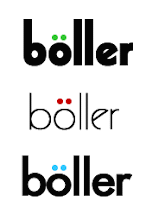
Improvement of Residual Stresses
To Enhance the Fatigue Life of ORS Bearings and Rollers
ORS Successfully completed yet another research and development project. Aim of this project was to increase the fatigue life and thus quality of "ORS" bearings and rollers by measurement and improvement of residual stresses. The project was done in cooperation with Berlin Technical University/Germany, Middle East Technical University/Turkey and with support of Science and Technological Research Council of Turkey (Tubitak)
Residual stresses are stresses, which are present in a workpiece without any acting exterior forces. All manufacturing processes and most of the treatments introduce residual stresses into parts.
It is a well known fact that compressive residual stresses have a beneficial effect on fatigue behaviour, fracture strength, and stress corrosion. Thus knowledge of total stress state within a component is important for fundamental understanding of modes of failure. Residual stress distribution combined with the applied loading will help to investigate the failure.
there are mechanical, thermal and structural means to introduce new residual stress state. Non-homogeneous plastic deformations, heat treatments and various surface treatment can lead to change in the residual stress distributions.
The relation between residual stresses and fatigue behaviour is subject of many recent studies. Residual stresses can change the cyclic deformation behaviour, promote or retard crack initiation, accelerate or decelerate crack propagation, and can be beneficial or detrimental to finite fatigue life and the endurance limit. This vital relation is also studied by fatigue life tests at ORS.
Therefore, it is very important to measure residual stresses. Residual stresses may be determined by mechanical methods, which are based on the destruction of the state of equilibrium of the residual stresses. The residual stresses can be measured by relaxing it by mechanical means.
There are also non-destructive methods such as measurement by X-Ray diffraction, which is based on measurement of lattice strains by studying the variations in the interplanar spacing of the polycrystalline material. It enables non-destructive evaluation of surface stresses and using a layer removal technique it is possible to obtain depth profile of stresses.
As a part of this project, ORS has purchased an X-Ray Diffraction system from agfa NDT Pantak Seifert Gmbh from Germany to execute this extensive study. It is a flexible XRD system, which will be used for retained austenite and residual stress measurements.
Residual stresses will be improves by evaluating the results obtained on the raceway of bearing rings and working surfaces of rollers at different applications.
XRD System basically consists of three parts as can be seen on the attached picture:
- X-Ray Tube
- Goniometer, Texture-Stress Attachment and XY stage = totally 7 axes.
- Detector
work was conducted in this project is yet another step towards higher quality products for ORS bearings customers world wide.
The news about the progress of this project will continue for the information of ORS bearings Customers.
boller bearings canada
http://www.bollerbearings.com/
ORS BEARINGS (TURKEY)
http://www.orsbearings.com/





No comments:
Post a Comment